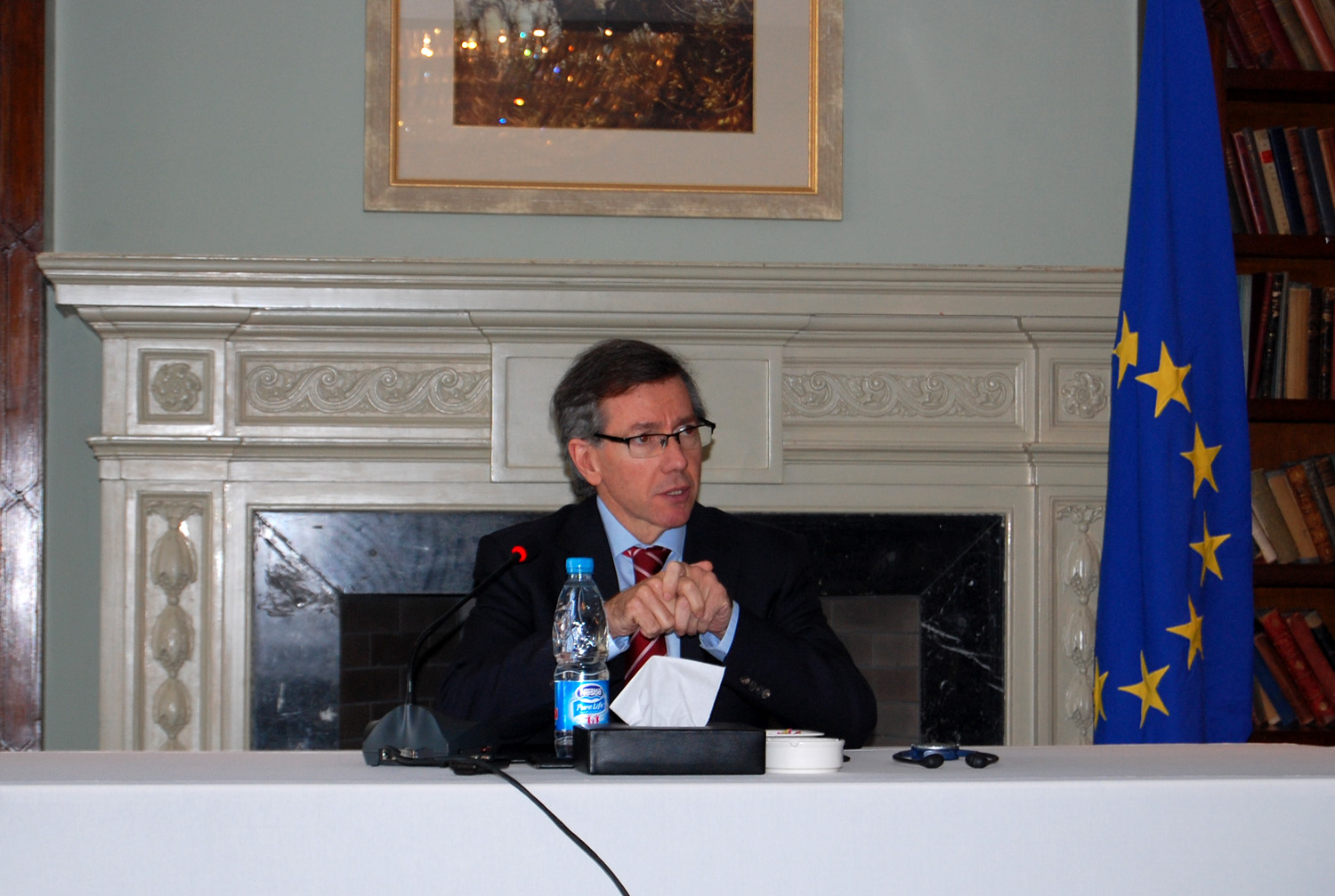
(AFP Photo)
Popular uprisings against Mohamed Morsi and the Muslim Brotherhood escalated around 30 June 2013, lasting until the Morsi’s ouster on 3 July of the same year.
At first, Egyptians who supported the “Tamarod” (“Rebel”) movement did not have a specific political vision in mind, except calling for new presidential elections.
Around the same time, the army stepped in and it became clear that they were to play an essential role in the post-30 June period, a move that was popularly supported. The political plan communicated to the public at that point included the establishment of a parliament.
Since then, there have been promises by former interim president Adly Mansour and current President Abdel Fattah Al-Sisi that parliamentary elections will occur. Those promises have been made both on the local and international levels.
On 30 June 2015, not only does Egypt still run without a parliament and without a specific date set for the elections, but also with incomplete parliamentary elections laws.
3 July 2013: A public armed forces statement by former Defence Minister Abdel Fattah Al-Sisi announces a three-stage roadmap, covering a new constitution, followed by parliamentary elections, and finally presidential elections.
15 September 2013: Former interim president Adly Mansour notes that holding presidential elections before parliamentary elections leads to an ‘undesired’ concentration of power in the hands of the president, during meeting with political powers, of which some pushed for presidential elections first.
19 January 2014: Egypt passes the constitution through a referendum. Article 230 of the transitional provisions section states that presidential or parliamentary elections shall be held no more than 90 days after the constitution’s enforcement, with the next elections to be held within six months of the constitution’s enforcement. However, it stated that presidential elections procedures shall begin within 30 days at most as of the first convening of the parliament.
26 January 2014: Former interim president Adly Mansour adjusts roadmap by setting presidential elections before parliament.
25 March 2014: Mansour asserts that Egypt is committed to completing the roadmaps’ steps ‘soon’, by holding presidential elections to be followed by parliamentary elections, in a speech in the 25th Arab League Summit held in Kuwait.
10 November 2014: Al-Sisi tells a US Business Delegation in Egypt the parliamentary elections, the “third and remaining milestone of the roadmap”, will take place before the convening of the international Economic Summit, in the first quarter of 2015.
8 January 2015: The Supreme Electoral Commission (SEC) announces that elections will begin in March 2015.
1 March 2015: The Supreme Constitutional Court (SCC) cancels elections by ruling parliamentary laws unconstitutional. The state promises to solve the issue within one month.
27 April 2015: Al-Sisi addresses the public on Labour Day, saying that it is unacceptable to doubt the state’s will to hold parliamentary elections, which would have been held in March if it was not for the appeals against laws. “We will have to wait after Ramadan (June-July) and high schools final exams”, he says.
30 April 2015: Al-Sisi tells the President of the Spanish Parliament Jesus Maria Posada that Egypt is keen on completing the institutional construction of the state through the parliament, which will serve its legislative and monitoring role.
4 May 2015:Al-Sisi tells German Foreign Minister Frank–Walter Steinmeier that parliamentary elections will occur in 2015.
27 May 2015:In a meeting with political party heads, Al-Sisi says the state is determined to hold elections before the end of the current year.
3 June 2015:In a press conference with German Chancellor Angela Merkel in Berlin, Al-Sisi says that parliamentary elections are in process.
5 June 2015: Al-Sisi tells Headof theHungarianParliamentLaszlo Kövér that parliamentary elections will occur before the end of 2015.
17 June 2015: Al-Sisi makes the same promise to British National Security Advisor Kim Darroch.
24 June 2015: Al-Sisi says the SCC halted March elections, but they will happen before end of 2015. People will have to elect wisely due to the crucial role of the upcoming parliament.
28 June 2015: The Minister of Transitional Justice and Parliament Affairs tells state media that there are expectations to hold elections in September 2015.



